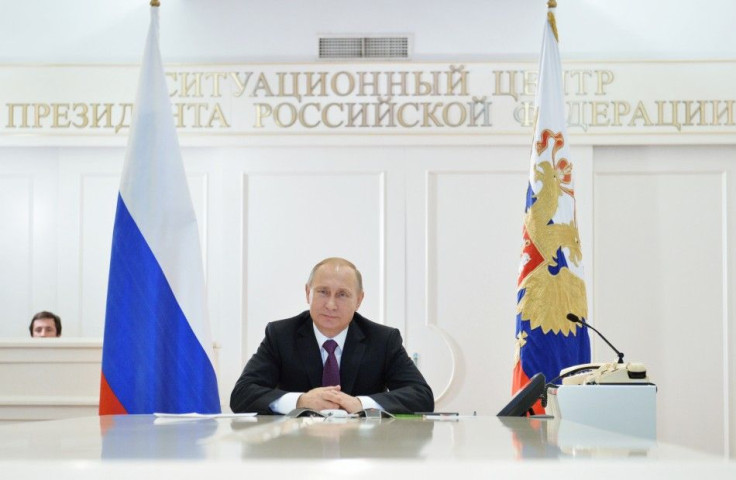UK-Russia Tension Escalates After Reported Nuclear Missile In Intercepted Russian Bomber

The Russian bomber jet intercepted over the English Channel last week had reportedly carried nuclear missiles designed to target Trident submarines. Royal Air Force fighter planes were scrambled after the UK detected two Russian TU-95 bombers flying over the Channel.
British Prime Minister David Cameron and Defence Secretary Michael Fallon were informed after it was confirmed that the Russian plane’s nuclear payload was detected by a Norwegian military listening post, Express.co reports. The information was also shared with the Ministry of Defence. According to ministry sources, one of the Russian bombers was carting at least one “nuclear warhead-carrying missile” designed to seek and destroy a Vanguard submarine.
“We downloaded conversations from the crew of one plane who used a special world which meant the would-be attack was a training exercise,” a senior source in the Royal Air Force said. The missile was not armed and the Russian crew would have to seek a direct order from President Vladimir Putin to activate it.
The British government had summoned the Russian ambassador Alexander Vladimirovich Yakovenko and another senior official in the UK Foreign Office to explain why Russian aircraft had flown over the English Channel last week. The presence of Russian bombers had forced British authorities to divert civilian aircraft.
The Wall Street Journal reports that the British government deployed military jets to meet the Russian planes that did not enter UK airspace. In a statement, officials believe that the “aircraft maneuvers” were part of a growing trend of overseas operations by Russia.
The meeting between the British government and the Russian ambassador comes at a time of increased tension between the West and Russia. Previous reports indicate that Mr. Putin had blamed the escalating violence in eastern Ukraine. The United States and EU had threatened Russia with new sanctions unless it stops supporting the rebels fighting the Ukrainian government.
According to the North Atlantic Treaty Organisation, Russian aircraft were intercepted more than 100 times in 2014 in European airspace. The UK defence secretary had declared last year that Russian activity over European skies was provocative, illegal and dangerous. NATO believes the non-disclosure of flight plans with no radio contact pose a threat to civil aviation.
Analyst Justin Bronk of the Royal United Services Institute said the continuous probing of Russian bombers in NATO airspace appears to be a pattern of Russia to remind the West that it is still a nuclear power. BBC News reports Russia has dismissed concerns that its planes were a threat to civil aviation. Yakovenko insisted that they were routine and within international laws.
To report problems or leave feedback for this article, contact: r.su@ibtimes.com.au





















